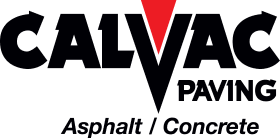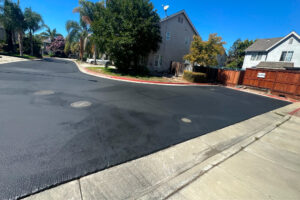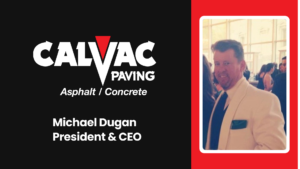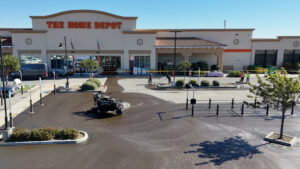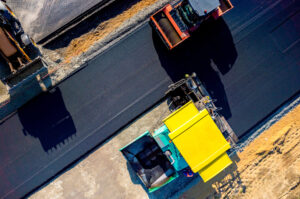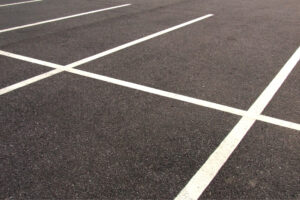See our work on social media:
Paving The Way Forward With Recycled Plastic
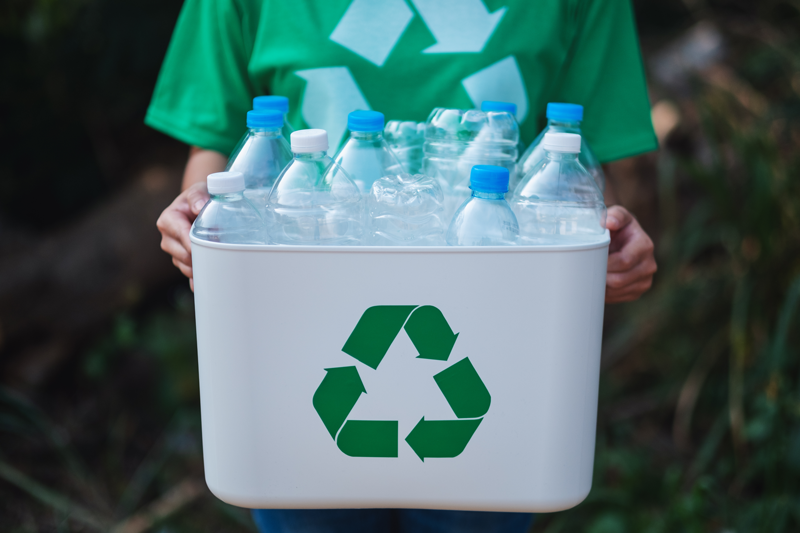
From India to Indiana, from Cumbria, England to Corpus Christi, Texas, everyone agrees the amount of free-floating plastic in the environment is an ongoing problem. With an estimated 5 trillion pieces of plastic adrift on the surface of the ocean alone and uncountable more tons of the material in landfills and vacant lots all over the world, plastic both makes our current standard of living possible and poses one of its most dire threats.
At Calvac Paving, we make a point of keeping current on the latest breakthroughs and experiments in building and paving technologies, and new processes for repurposing plastic as a paving material is very much in our wheelhouse. Several different processes are in the testing stage, including using plastic to coat paving aggregates and reduce the amount of bitumen necessary for traditional asphalt; adding pellets of recycled plastic as part or all of the aggregate portion of the asphalt; and a Lego-like process of building roads from paving blocks of recycled plastic.
Apart from the obvious advantages of reducing the environmental impact of discarded free-range plastic, the primary benefit of utilizing plastic-impregnated asphalt is twofold. First, using plastic seems to increase the tensile strength of asphalt significantly, up to 60% in certain mixes.
Second, by reducing the amount of bitumen, or tar, used as the binding agent in most industrial asphalt mixes, it may also cut the cost of paving by up to 15%. The higher tensile strength potentially increases the size and mass of traffic that can use these roadways, meaning it may be possible to move more freight and larger vehicles in areas where existing paving and statutes would simply not permit them. In turn, this could substantially reduce transportation costs and thus the costs of everything from steel to gasoline to milk.
In addition, plastic-impregnated asphalt may lend itself more readily to hybridization with innovations such as the self-charging roads that we’ve discussed recently. As the costs of developing and deploying these technologies shrink, the likelihood of incorporating multiple technologies into a single roadway increases at a similar rate.
Almost as interesting as what plastic asphalt can do is the story of the various ways in which its applications came to be. In India, a chemistry professor, annoyed with the potholes of his city, remembered seeing people in Mumbai patching similar potholes by filling them with empty plastic bottles
and then heating them to a liquid state. In Scotland, an engineer built on the India protocol by using pellets of recycled plastic, aggregate and a very small amount of bituminous binder to create a roadway surface which causes less wear on tires. Meanwhile, a company in the Netherlands backing the block paving strategy was inspired by the idea that using interlocking blocks would allow for easier infrastructure placement and damaged section replacement.
By reducing the amount of “trash” plastic in the open environment and repurposing it in new ways, these innovators are also challenging accepted notions of what is possible in large-scale construction. These changes in turn may serve to make not only the final product of construction initiatives, but the processes and techniques by which they are created, more efficient, effective and environmentally friendly.
Calvac Paving takes our role in environmental sustainability and finding better ways to accomplish the tasks we undertake more effectively and safely very seriously. It is the entire reason we keep such a close eye on how construction technology is changing and evolving. When and where possible, we make it a point to adopt and implement these changes ourselves, because while we know the “tried and true” methods have survived and been used as long as they have for very good reasons, we also understand there’s almost always a better way to do just about anything if you’re willing to look hard enough for it.

We at Calvac Paving believe we can best serve the communities we live and work in by emphasizing the fastest, safest and most c
ost-effective means available to do our jobs, while striving to reduce the impact our industry can have on the global as well as local environment. It’s all part of Calvac Paving’s commitment to not just doing the job, but doing it right. We do it for our clients/stakeholders, for our community and for a better, cleaner, healthier world. To learn more about Calvac’s commitment to the environment, or to put the four decades of experience we bring to every project to work for your job, please contact us at (408) 225-7700 or https://www.calvacpaving.com/contact-us/
Company
Services
Contact us
© 2025 All Rights Reserved.
